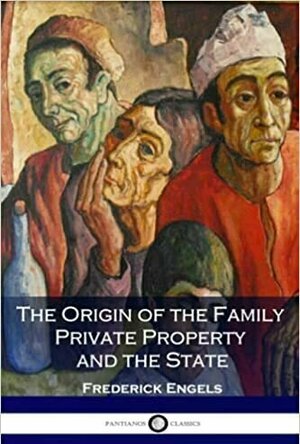The Origin of the Family, Private Property, and the State
BookThis item doesn’t have any media yet
2016 | Philosophy, Psychology & Social Sciences
Friedrich Engels' treatise on family economics and its connection with human history and development is published here in full.
This treatise is notable both as a premier work on family economics, and as one of the first texts to connect principles of anthropology to economic theory. Engels advances the view that early human society was matrilineal; greater power and status was given to women rather than men.
Engels examines the primitive tribal societies of the Native Americans, where matriarchal arrangements were relatively commonplace. He proposes that the effects that monogamy and the increasing levels of private property decreased the influence of women in family life and thus the wider society; a process which Engels believed had advanced over thousands of years of advancing human civilization.
Engels argues that women were able to bond and work together on a principle of sisterhood; he argues that this occurrence is a form of primitive communism. In the modern day, Engels' arguments in favor of matrilineal heritage in early human societies are generally disregarded. However, anthropologists such as Christopher Knight believe there is merit in Engels' claims, and criticize the prevailing views.
Following the death of his contemporary Karl Marx, Friedrich Engels spent years organizing and researching various economic ideas. Wishing to expand on the ideas and explanations Marx expressed, Engels' set about publishing several treatises working from both his own researches and those of Marx.
These ambitions were thwarted somewhat by the Anti-Socialist Laws enacted in Germany; for its subject however, The Origin of the Family was able to be successfully published in multiple editions during Engels' lifetime. This edition contains the revisions Engels' implemented in 1891 to account for discoveries and advances made in anthropology.
Related Items:
This content (including text, images, videos and other media) is published and used in accordance with Fair Use.
